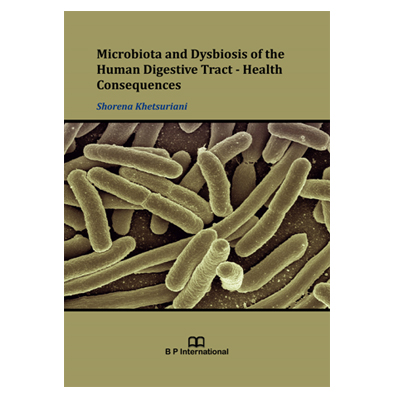The microbiota of the human digestive system is represented by a complex ecosystem with a diverse and highly developed microbial community consisting of hundreds of different species. They live together in harmonic and dynamic equilibrium in the human organism. The symbiotic relationship between humans and microbes has developed over millions of years, permitting them to thrive in their biophysical habitat. Rapid transformations in human lifestyles can reshape the microbiome with unknown consequences for health and predisposition to diseases. The immune system facilitates a complex interaction between the environmental microbial world and the indigenous human microbiome.
The human digestive tract microbiota is an important component of the human body and is closely linked to both human health and disease. Interactions that occur between this complex microbial ecosystem and host organism are now the focus of medical interest, as the number of diseases associated with dysbiosis is increasing. The book offers some key aspects of the role of human digestivetract microbiota in the formation of health as well as the importance of dysbiosis in the pathogenesis of different diseases. Chapters are focused on the formation and composition of microbiota at different ages, alterations in different parts of the digestive system, and factors that cause dysbiosis, highlighting the impact of dysbiosis in the pathogenesis of different diseases.
This book contains a compilation of existing points of view and knowledge, collected from various evidence-based scientific publications and is intended for students of all levels of different medical and biomedical study programs, physicians, and readers interested in these issues.





